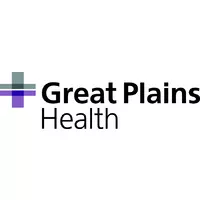
North Platte, NE – Great Plains Health has joined a statewide effort to reduce maternal deaths by launching Postpartum Alert: A Life-Saving Maternal Safety Initiative to help bridge a critical gap in postpartum care and help better support mothers in our community.
Postpartum Alert employs a simple yet effective visual system: teal wristbands worn by postpartum patients during the critical six-week period after delivery. These bands alert healthcare providers to the patient’s postpartum status, enabling timely recognition and response to life-threatening complications.
“We know how vulnerable this time can be for new mothers,” said Michelle Pagel, Director of Women’s and Children’s Services at Great Plains Health. “The teal wristband is such a simple idea, but it helps our entire team – from the person checking you in to the doctor treating you – know that you’re in those critical first six weeks after delivery. We hope this small change can make a big difference in keeping our moms safe.”
Nebraska has the 17th highest rates of maternal mortality nationwide, underscoring the urgent need for initiatives like Postpartum Alert. With maternal mortality rates in the U.S. three times higher than in other developed nations, this program addresses a critical gap in postpartum care. By enhancing awareness and facilitating urgent care, the initiative aims to save lives and improve maternal health outcomes.
How the Program Works
Postpartum patients wear a teal wristband for six weeks after delivery, ensuring that all medical staff are immediately aware of their postpartum status. Patients are encouraged to attend all follow-up appointments, take prescribed medications, and seek immediate care if they experience warning signs of complications.
Critical Warning Signs
Timely recognition of postpartum warning signs is crucial. Patients and providers should watch for symptoms that may indicate life-threatening complications.
Emergency warning signs include chest pain, difficulty breathing, seizures, uncontrollable bleeding, or thoughts of self-harm or harming others, all of which require calling 911 immediately. Additional symptoms such as severe headaches, dizziness, heavy bleeding, swollen or painful legs, persistent fever, fatigue, or high blood pressure readings should prompt immediate contact with a health care provider.





